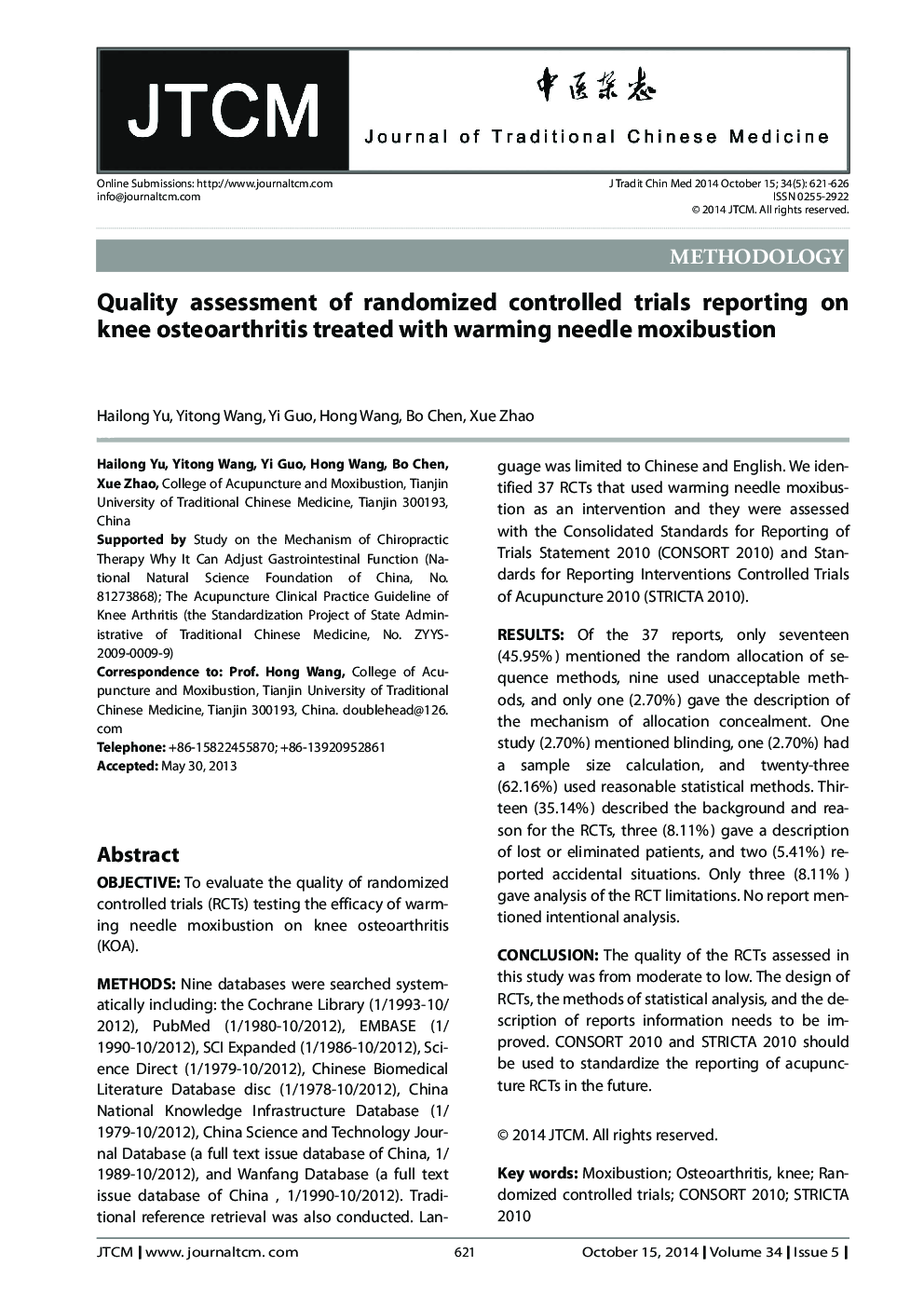| کد مقاله | کد نشریه | سال انتشار | مقاله انگلیسی | نسخه تمام متن |
|---|---|---|---|---|
| 4201012 | 1279385 | 2014 | 6 صفحه PDF | دانلود رایگان |

ObjectiveTo evaluate the quality of randomized controlled trials (RCTs) testing the efficacy of warming needle moxibustion on knee osteoarthritis (KOA).MethodsNine databases were searched systematically including: the Cochrane Library (1/1993-10/2012), PubMed (1/1980-10/2012), EMBASE (1/1990-10/2012), SCI Expanded (1/1986-10/2012), Science Direct (1/1979-10/2012), Chinese Biomedical Literature Database disc (1/1978-10/2012), China National Knowledge Infrastructure Database (1/1979-10/2012), China Science and Technology Journal Database (a full text issue database of China, 1/1989-10/2012), and Wanfang Database (a full text issue database of China, 1/1990-10/2012). Traditional reference retrieval was also conducted. Language was limited to Chinese and English. We identified 37 RCTs that used warming needle moxibustion as an intervention and they were assessed with the Consolidated Standards for Reporting of Trials Statement 2010 (CONSORT 2010) and Standards for Reporting Interventions Controlled Trials of Acupuncture 2010 (STRICTA 2010).ResultsOf the 37 reports, only seventeen (45.95%) mentioned the random allocation of sequence methods, nine used unacceptable methods, and only one (2.70%) gave the description of the mechanism of allocation concealment. One study (2.70%) mentioned blinding, one (2.70%) had a sample size calculation, and twenty-three (62.16%) used reasonable statistical methods. Thirteen (35.14%) described the background and reason for the RCTs, three (8.11%) gave a description of lost or eliminated patients, and two (5.41%) reported accidental situations. Only three (8.11%) gave analysis of the RCT limitations. No report mentioned intentional analysis.ConclusionThe quality of the RCTs assessed in this study was from moderate to low. The design of RCTs, the methods of statistical analysis, and the description of reports information needs to be improved. CONSORT 2010 and STRICTA 2010 should be used to standardize the reporting of acupuncture RCTs in the future.
Journal: Journal of Traditional Chinese Medicine - Volume 34, Issue 5, 15 October 2014, Pages 621-626